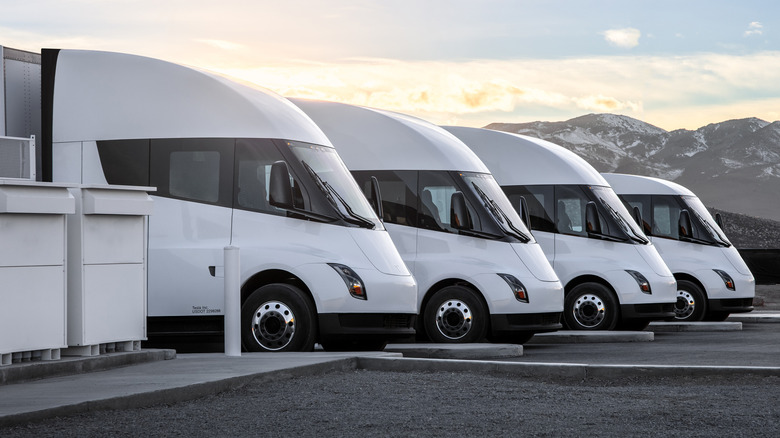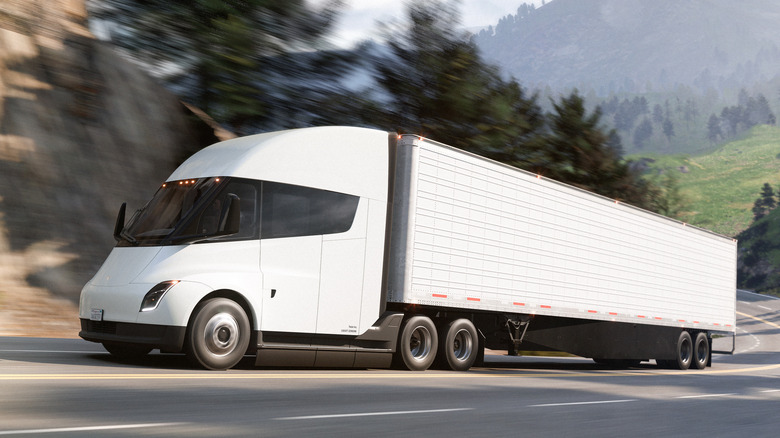Latest Tesla Semi Recall Is Another Road Bump For The EV Hauler
A few days ago, a new voluntary recall was issued for the Tesla Semi truck. This latest recall is focused on a glitch with the vehicles' side door, which could result in drivers operating the all-electric Class 8 truck with the side door open. Like many Tesla recalls, the fix for a faulty door warning system will be remedied via a simple over-the-air software update, which will change how the warning displays on-screen, making it more difficult for drivers to dismiss the warning message accidentally.
This issue will affect 36 of the company's Semi trucks, all of which are likely operated by PepsiCo or one of its subsidiaries such as Frito Lay, since PepsiCo was the launch customer for the truck.
The side door recall follows an earlier recall in March 2023 for a faulty parking brake module that affected a quantity of 35 Tesla Semis. To be fair, the troubled parking brake module was supplied by Intellipark Systems to several other truck manufacturers as well — including internal-combustion-engine powered trucks — which were also subject to recall.
Semi production is going slower than expected
What's intriguing about the latest recall is that it lays bare just how few Tesla Semi trucks are actually being produced. Electrek did some detective work regarding the production dates of trucks involved in the two recalls and calculated that over a period of 15 days in early March, a grand total of one Tesla Semi rolled off the assembly line. Since the latest recall applies to Tesla Semis produced through March 15, 2023, it's unclear if trucks manufactured after that date already have updated software to remedy the side door sensor as well.
According to the Wall Street Journal, Tesla CEO Elon Musk made a statement last week at a conference in Austin, Texas that Tesla Semi production wouldn't ramp up to significant volumes until the end of next year. That's in contrast to a past declaration from Musk that 50,000 Semis would be produced for the North American market by the end of 2024. The controversial CEO attributed the production delay to a limited supply of batteries.

